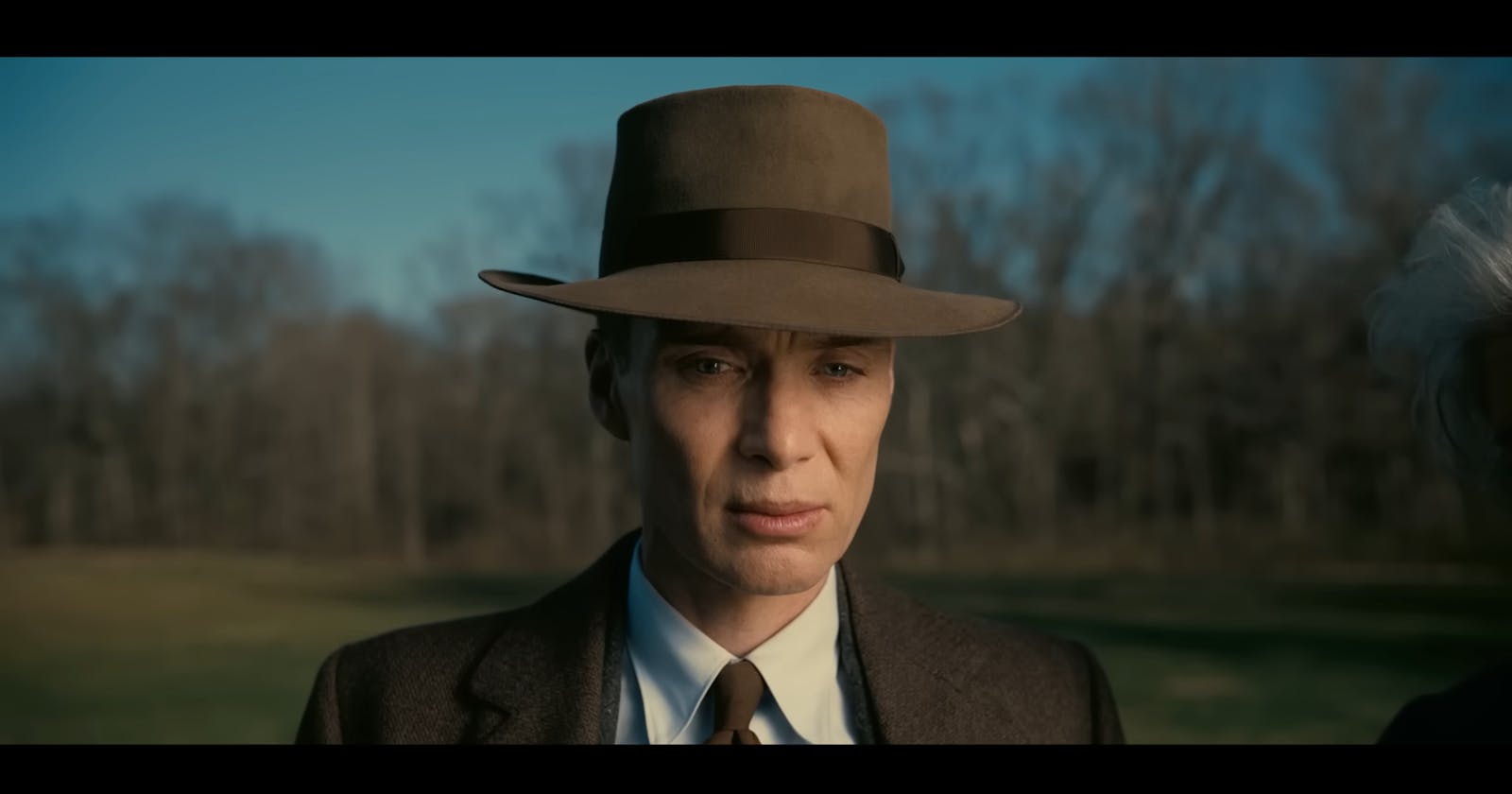I’m recently looking forward to the Oppenheimer (2023) film starring Cillian Murphy as J. Robert Oppenheimer. In light of a time where nuclear weapons are on the table between Russian and NATO forces, I hope this piece will highlight the development of such weapons, and take audiences away from the political field. I also hope that this film allows viewers to comprehend the hardships needed to advance our technology and the later consequences of doing so.
The film tells the story of the development of the first atomic bomb, led by Oppenheimer and physicists of the Manhattan Project during World War 2. The famous Richard Feynman - who is one of my personal favourite educators - had just come to the Project, fresh out of graduate school, and was placed in the theoretical physics department.
Just in the trailer, I can see the fear in all the scientists and even in Cillian Murphy himself, as they delicately load the plutonium and uranium core which would be loaded for the first set of testing. I also get the impression that this film portrays a genuine sense of honesty never before seen in historical science films. Unlike others before such as Theory of Everything (2014), The Imitation Game (2014), and The Man Who Knew Infinity (2016), shows the prophet protagonist as some wizarding romantic genius who has the “key” to humanity’s advancement. Not to mention the hoard of cliché physics TV series hosted by pop-science ideologues such as Bill Nye, Michio Kaku, Brian Cox or Niel deGrasse Tyson. Although they engage people in science, they fail spectacularly to highlight any moral importance other than an atheist’s mysticism.
J Robert Oppenheimer, when he first witnessed the detonation of his atomic bomb in July 1945, he quotes Vishnu:
"Now I am become Death, the destroyer of worlds."
Cillian Murphy and the supporting cast in Oppenheimer (2023) do an excellent performance of showing genuine fear, persistence, pressure and anxiety when being in the hands of something so destructive. This type of realism is never seen in the pop science clowns which have dominated science education and the Hollywood media.
Even the mere titles of these pseudo-shows lead people to believe science is some religious mysticism: The Wonder of the Universe (2011), The Secrets of Quantum Mechanics (2014), Sci Fi Science: Physics of the Impossible (2009), Shock and Awe: The Story of Electricity (2011), Eureka! (1981).
As somebody who has not only watched these TV series since the age of 14, I became so engaged by them that I applied to university Physics. I entered university with the hopes that somehow by understanding science I would acquire a sense of religious enlightenment, offered by these false-claiming prophets.
By the end of my degree, I was developing a Raman spectroscopy device which may be used for chemical analysis. The device incorporates skin-burning lasers, once magnified can cut through human flesh, as well as machine learning algorithms which can accurately determine any chemical better than any previous method. The laser, which if I wasn’t careful, could leave me permanently blind.
I discovered that science was not the wondrous and holy pursuit made out to be by the popular media. Science is a dangerous game. Once you wield whatever it is you are sharpening, you become incredibly monstrous and powerful. Science is a mode of investigation that has made us immensely technologically superior to our ancestors. Science has allowed us to create murderous weapons capable of annihilating each other.
As in the case of Oppenheimer, he knew exactly what he had his hands on, he knew exactly the destruction it would cause, and he knew exactly how people in the military and political sphere would use it. To Oppenheimer, as far as I can assume, science is not this mystic, wondrous and God-like spirit. That idea has no grounding and if he was led by that spirit he would not have made what he made but would be dancing naked in puddles with flowers in his hair.
Science is a tool. It is a sickle and a hammer. It is a tool to be forged in the fire of persistence. It is a sword to be sharpened and wielded, but to be covered and sheathed, and to be unsheathed when needed.
Nonetheless, if we swing our swords correctly, we can solve problems towards the highest possible good. We have lifted 50% of the world out of poverty due to our ongoing advances within the last century. We have alleviated suffering in almost all corners of the globe. We have implemented strategies to secure populations during natural disasters. There is no upper limit to what human beings can achieve if we wield our sword correctly, but we still have to understand that it’s a sword, and not some innocent toy.
The atomic bomb, just like any scientific advancement, is a sword kept sheathed. In spite of the Russia-Ukraine conflict, all the major powers of the globe have nuclear weapons, but none would dare to use them. In 1965, Oppenheimer remembers the moments he first witnessed the test at Alamogordo Bombing Range, 210 miles south of Los Alamos:
“I knew the world would not be the same. A few people laughed. A few people cried. A lot of people were silent.”
